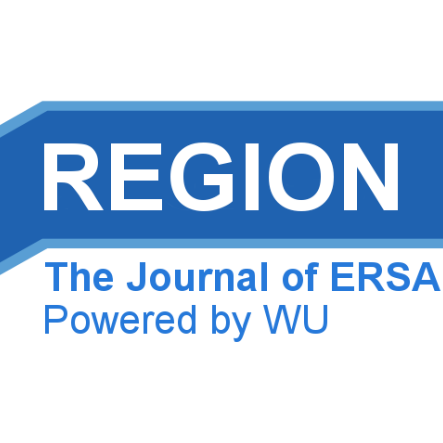Integrated local development in Mediterranean marginal territories: The case study of Casentino (Italy), Algarve (Portugal) and Corse (France)
DOI:
https://doi.org/10.18335/region.v6i1.208Abstract
Today, Mediterranean marginal territories are facing tremendous challenges but at the same time they have relevant endogenous resources, which are often underutilized and unexploited and that could be pivotal for the strategic recovery and economic and social development of the whole European territory. In the last decades, they have been characterised by a progressive abandonment in favour to urban areas, with consequent high social costs such as the hydrogeological instability, degradation and soil erosion.
This research investigates the potential active role of Mediterranean “marginal territories” with respect to the re-formulation, adaptation, interpretation and implementation of the European development policies.
The paper aims to verify the idea that Mediterranean marginal territories, in the sense of weak, mountainous and inland, could take part at the construction of their own development trajectories and actively contribute to the harmonious development of Europe, creating new jobs opportunities and stable development patterns. Moreover, the paper aims to formulate policy implications and strategies for the studied areas and for Mediterranean marginal territories more in general.
The structure of this paper starts from general theoretical arguments and a short description of European policies for development; it follows with the diagnostic analysis of three local territorial contexts – i.e. Casentino (Italy), Algarve (Portugal) and Corse (France) – and then it comes back on the general European issues proposing implications and lessons learnt in the analysis of the development processes at the local level.
Published
How to Cite
Issue
Section
License
Copyright (c) 2019 Andrea Ricci, Mario Biggeri, Andrea Ferrannini

This work is licensed under a Creative Commons Attribution-NonCommercial 4.0 International License.
REGION is an open journal, and uses the standard Creative Commons license: Copyright We want authors to retain the maximum control over their work consistent with the first goal. For this reason, authors who publish in REGION will release their articles under the Creative Commons Attribution license. This license allows anyone to copy and distribute the article provided that appropriate attribution is given to REGION and the authors. For details of the rights authors grant users of their work, see the "human-readable summary" of the license, with a link to the full license. (Note that "you" refers to a user, not an author, in the summary.) Upon submission, the authors agree that the following three items are true: 1) The manuscript named above: a) represents valid work and neither it nor any other that I have written with substantially similar content has been published before in any form except as a preprint, b) is not concurrently submitted to another publication, and c) does not infringe anyone’s copyright. The Author(s) holds ERSA, WU, REGION, and the Editors of REGION harmless against all copyright claims. d) I have, or a coauthor has, had sufficient access to the data to verify the manuscript’s scientific integrity. 2) If asked, I will provide or fully cooperate in providing the data on which the manuscript is based so the editors or their assignees can examine it (where possible) 3) For papers with more than one author, I as the submitter have the permission of the coauthors to submit this work, and all authors agree that the corresponding author will be the main correspondent with the editorial office, and review the edited manuscript and proof. If there is only one author, I will be the corresponding author and agree to handle these responsibilities.




